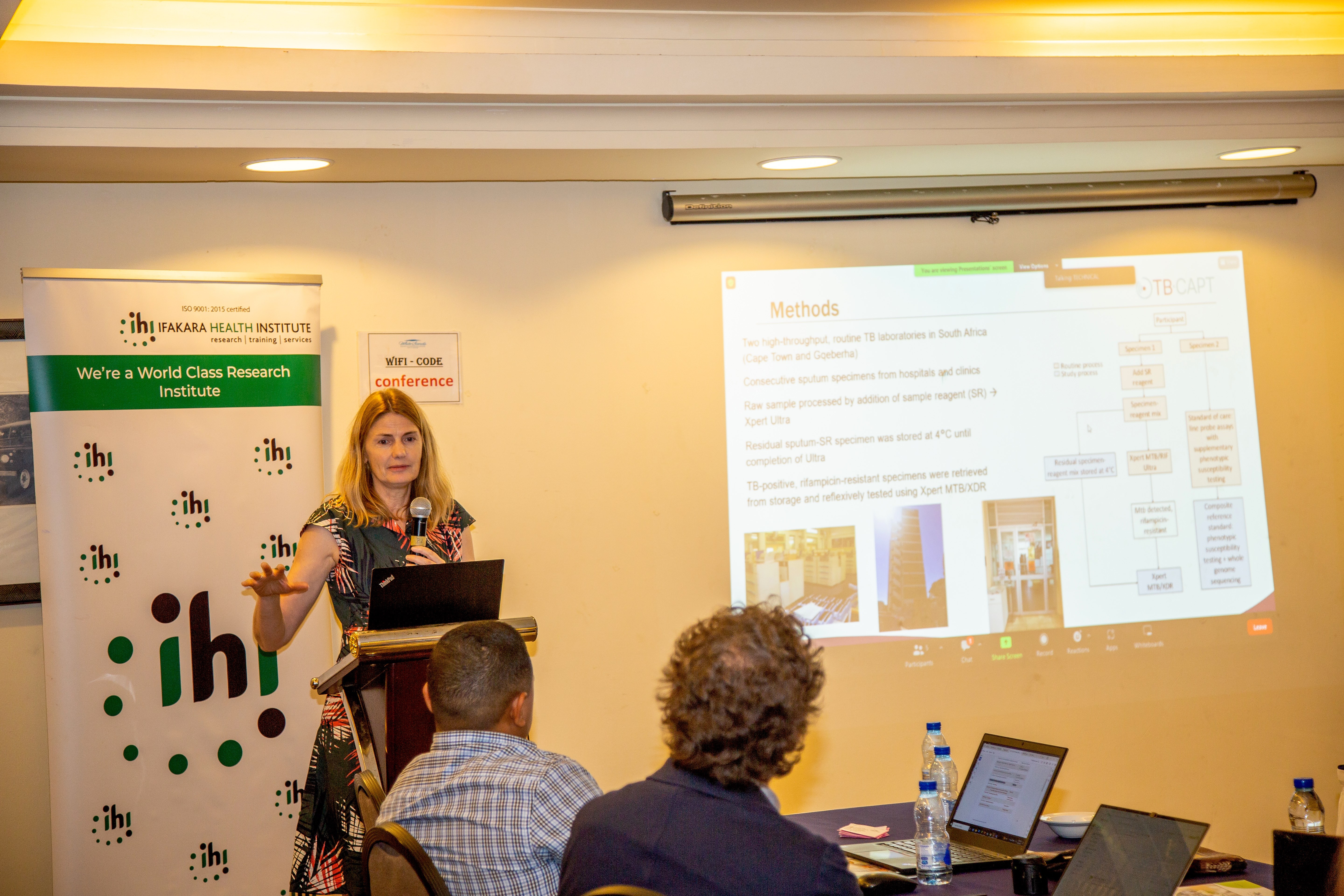
TB: Scientists share updates, chat way forward

Ifakara Health Institute hosts scientists from South Africa, Tanzania and Mozambique for a 2-day Tuberculosis-Close the Gap, Increase Access, Provide Adequate Therapy (TB-CAPT) Annual Consortium Meeting which gets underway in Dar es Salaam today.
On Day 1, the scientists discussed updates from the project sites, received input from each other, reviewed project deliverables and milestones, and planned the way forward and on day 2, they shared and discussed the user experience of the "TrueLab/TrueNat" – a real-time diagnostic machine for analyzing TB data.
The scientists provided insights into the status and feedback regarding the deployment of the diagnostic machine in Tanzania and Mozambique. They discussed the positive and negative experiences of patients, clinicians, lab technicians and nurses in using the machines and what can be concluded from the findings.
Ifakara Health Institute has been facilitating the project in Tanzania’s coastal areas of Dar es Salaam, for a duration of 3.5 years, from 2019 to 2023. This initiative involved clinical trials carried out in eight primary healthcare facilities.
Potential to TB-CAPT2
The group unanimously acknowledged the significant strength of the networks and partnerships from the project, as well as the excellent collaboration achieved thus far. They expressed hope that the research findings would lead to practical applications within the community.
A question was raised about what comes next - whether there will be a TB-CAPT2. Dr. Jerry Hella, who serves as the Principal Investigator for the project and also holds the role of project leader/coordinator, responded, “Beyond June, I am optimistic that the time we spent in the consortium will lead to continued collaboration in many more projects with the same partners.”
About TB-CAPT
The TB-CAPT project is funded by the European and Developing Countries Clinical Trials Partnership (EDCTP). Its primary objective is to provide evidence for the implementation of diagnostic strategies for TB and TB/HIV co-infection.
TB-CAPT aims to evaluate new technologies and their potential to enhance patient outcomes by replacing the current standard of care. Additionally, the project seeks to facilitate policy changes and inform implementation strategies at global, national, and regional levels. It also focuses on strengthening infrastructure and building human capacity within the project's implementation areas, which include South Africa and Mozambique.
>>Learn more about TB-CAPT here
About TB
It is estimated that more than 10 million people worldwide fall ill with TB each year. However, only approximately 7 million cases are identified, leaving many undiagnosed. Among the nearly 2 million TB-related deaths annually, a majority could be prevented with early diagnosis and appropriate treatment.
The diagnosis gap in TB remains a significant challenge. Closing this gap is essential, and it requires the development of new TB tools and diagnostic technologies capable of not only detecting the disease but also identifying drug-resistant TB strains.
>>Learn more about TB here
